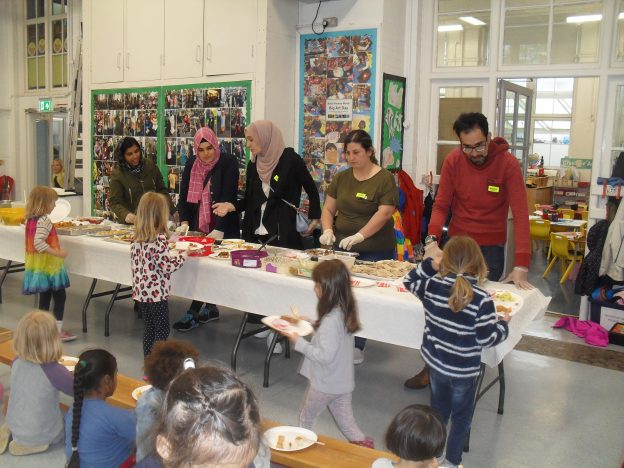Address:
William Patten Primary School
Stoke Newington Church Street
London N16 0NX
Office Manager: Rita Quigley
SENDCo: Caitlin Shaw
William Patten Primary School
Stoke Newington Church Street
London N16 0NX
Office Manager: Rita Quigley
SENDCo: Caitlin Shaw

The school operates an open door policy and talking with and listening to our families is very important. The Headteacher, Deputy Headteachers and Assistant Headteacher are always at the gates on Lancell Street and Dynevor Road in the morning to say hello, have a chat or answer a query. For longer discussions, parents can email admin@williampatten.hackney.sch.uk to make an appointment to see Karen, Craig, Sian or Maria. Parents will usually be contacted on the day to arrange a time to meet. If we can see parents on the same day, we do!
Staff are happy to make appointments to meet parents/carers. If there is anything you want to discuss with teachers we encourage you to do so, so that problems or concerns can be quickly resolved. Teachers are generally not free to have lengthy discussions at dropping off or picking up time, but please make an appointment through the office. The office staff will give you a form to pass your request to the relevant teacher, or you can email a request to the school office. We will get back to you as soon as possible to arrange a suitable time to meet the teacher.
In the Autumn, Spring and Summer terms parents/carers will be invited to have a consultation meeting with their child’s teacher to discuss progress and any areas of concern.
Throughout the year we hold curricular meetings on a range of subjects where parents can share in the work of the school.
Written reports are sent to parents/carers at the end of each school year. The reports comment on progress and achievement in all areas of the curriculum, attitudes and behaviour. Targets for your children will be shared with you so that you can support your child.
In addition to this annual report, parents of children in Reception, Year 1, Year 2 and Year 6 also receive statutory reports for pupils at the end of these year groups; these include the outcomes of national curriculum assessments. At the end of Reception, the Early Years and Foundation Stage Profile (EYFSP) is completed which indicates a child’s level of development in all areas of the EYFS curriculum. At the end of Year 1, parents are informed of their child’s score in the national Phonics Screening Check. At the end of Year 2 and Year 6, parents receive information about their child’s performance in the Standard Assessment Tests (SATs).
Home and school are the two most powerful influences on children and only by working together can we ensure children get the best education.
Do please help us by:
Please come into school if you have any kind of problem and we will always try to help.
Children learn faster when parents regularly (ideally daily) support their children’s reading by:
Our homework policy is designed to:
You can help your children by talking to them about their work, providing a quiet place and time to do homework, and by encouraging them to complete work and bring it into school on time.
We share our homework policy with parents at all times and welcome their comments.
If you are unhappy about an aspect of school life, in the first instance this should be discussed with the class teacher, who may be able to resolve the problem. If the problem is still unresolved, then an appointment should be made with the Headteacher.
In the vast majority of cases, an acceptable resolution is usually achieved. If, however, a problem is still not resolved, the school follows the official complaints procedure adopted by the Governing Body. A copy of this is available from the school office.